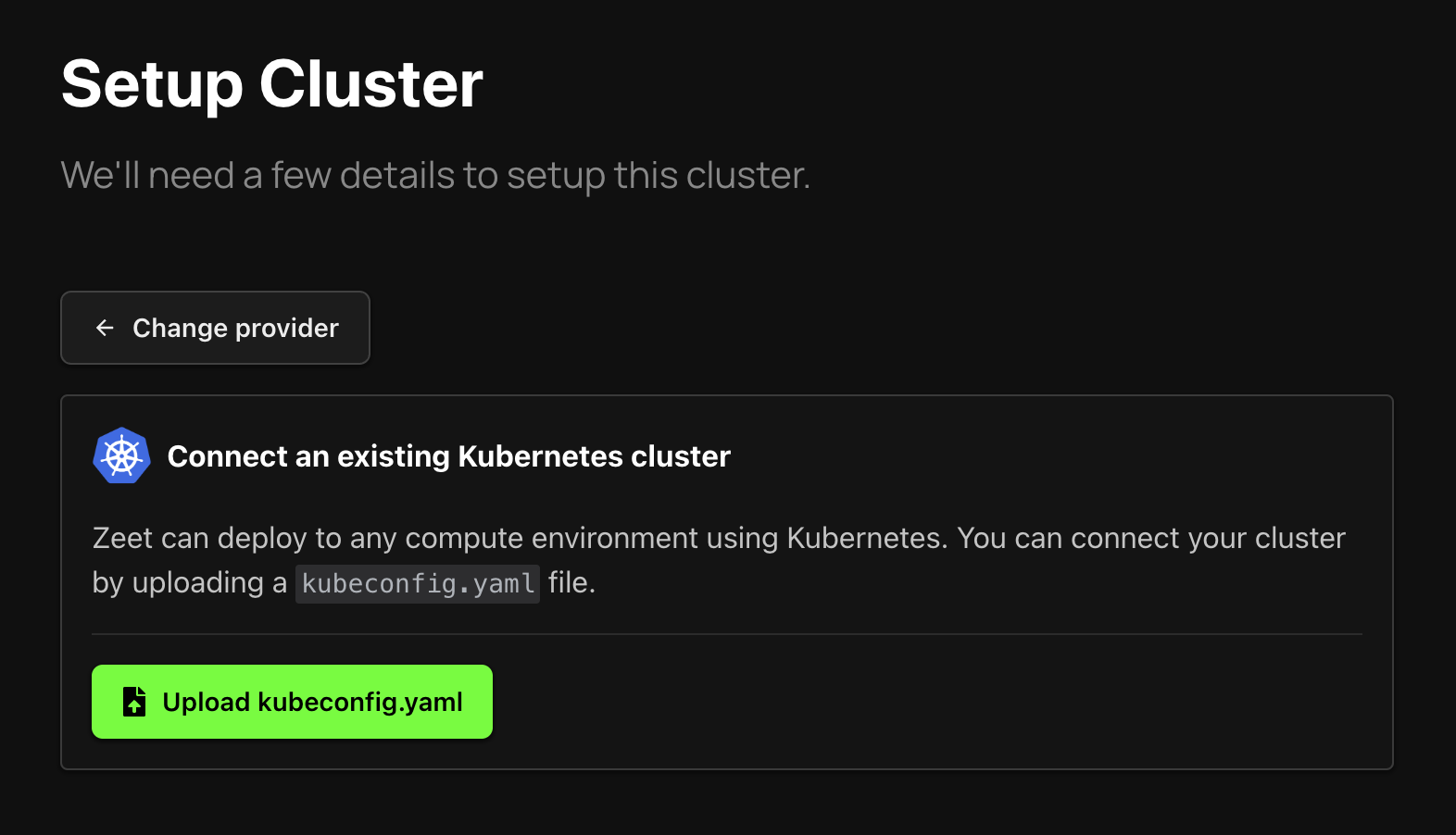Azure Kubernetes Service (AKS) Integration Guide with Zeet
This guide explains the steps to integrate Azure Kubernetes Service (AKS) with Zeet. It focuses on installing the necessary cluster components and connecting your AKS cluster to the Zeet platform.
1. Installing Cluster Components
Setting up an AKS cluster for integration with Zeet involves configuring various components to boost the functionality and manageability of your Kubernetes environment.
Cluster Components Manifests
Find all necessary files and templates in our GitHub repository: zeet-dev/zeet-cloud-azure. This repository includes the Terraform scripts and Kubernetes configurations required for integration.
Parameters Needed
Key parameters for the setup include:
- AZURE_SUBSCRIPTION_ID: Your Azure subscription ID.
- AZURE_TENANT_ID: Your Azure tenant ID.
- CLUSTER_NAME: The name of your AKS cluster.
- CLUSTER_REGION: The Azure region where your cluster is located.
- CLUSTER_DOMAIN: The domain name for your Kubernetes cluster.
These parameters are essential for effectively configuring your AKS cluster components.
2. Connecting Your Cloud Account with Zeet (Optional)
After configuring the cluster components, consider connecting your Azure account with Zeet. This connection allows Zeet to access your Azure cloud resources.
Note: This step is optional and only needed if you want Zeet to interact with your Azure account. Skip this step if you are only managing resources within your AKS cluster.
For further information, check out Zeet Azure Integration Documentation.
3. Connecting Your AKS Cluster with Zeet
Create a Service Account for Zeet with Cluster Access
Zeet requires a service account with role binding for managing your AKS cluster. Use the following manifest to create a service account:
To create a kubeconfig file from a service account, follow this guide: Creating kubectl config file for service account.
Connect Your Cluster with Zeet
Visit the Zeet cluster connection page to start the integration: Connect Cluster.

Upload the Kubeconfig File
